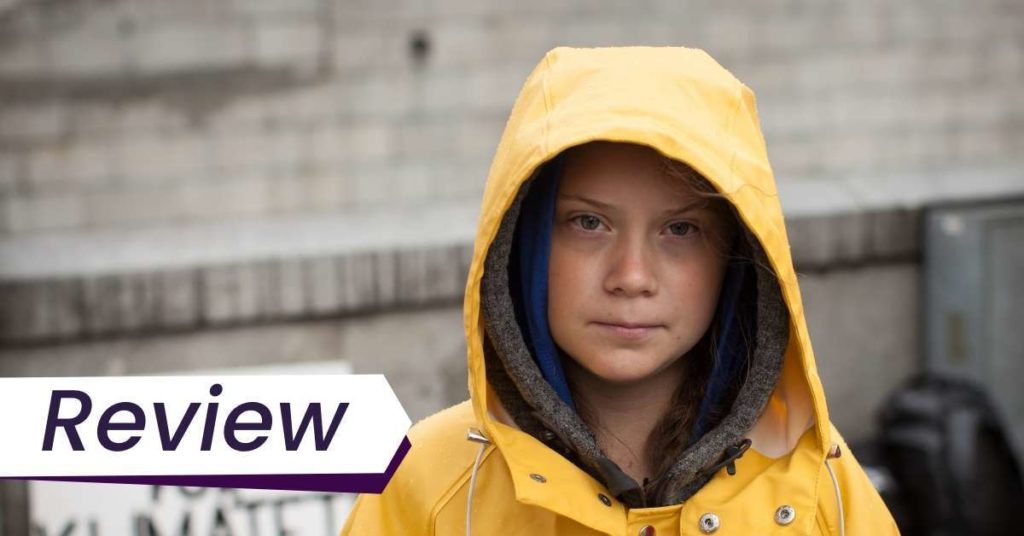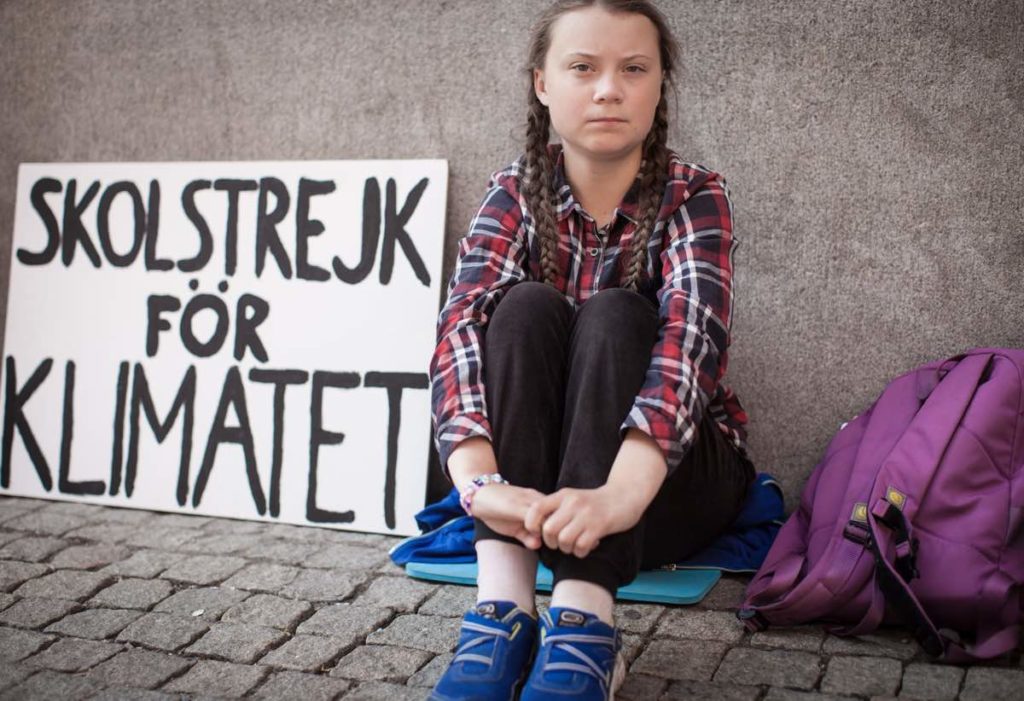Nathan Grossman’s I Am Greta about teen climate activist Greta Thunberg tells the story of the girl behind the figurehead but fails to take an interest in what matters most to her.

Early in I Am Greta, teenage climate activist Greta Thunberg expresses her frustration that most world leaders don’t know basic facts about climate, like the albedo effect. She is appalled to see meat, a food with one of the highest carbon footprints, served at an international climate conference. Don’t they see the hypocrisy in that, she wonders?
As a PhD candidate studying the environmental impact of the food system, I could fill in the blanks about what the albedo effect is — it has to do with the reflectivity of the earth’s surface and how that affects the degree to which it acts like a blackbody, radiating heat — and just how bad the carbon and water footprints of meat are. I’m not sure that would be true of the average viewer though since these don’t seem to be facts that director Nathan Grossman has himself bothered to learn over the course of following Thunberg for years. They certainly aren’t facts shared with the audience.
Grossman’s film began as a short, when, on a whim, he went to meet the teenager who was striking for climate change action in front of the Swedish parliament buildings. He never expected Thunberg to become not just an international sensation but the subject of a feature-length film that he would spend years shooting.

I Am Greta tells the story of the girl behind the iconic figurehead: Greta’s daily struggles to meet her obligations as an activist when her autism means she’d prefer not to have these obligations, her relationship with her parents, and what it is to be in the spotlight at such a young age. Unfortunately, Grossman falls into the same trap of lionizing Greta while ignoring the issues she cares about that the many other adults that Greta meets fall to.
Throughout the film, Greta becomes frustrated with meeting politicians who care more about being photographed with Greta than actually taking action on what she’s fighting for. When she meets with French president Macron, he asks her what she’d like him to do, and what her priorities are, as if it’s the responsibility of a 16-year-old to have the answers to questions adults have been avoiding for decades. When meeting other climate activists her age, Greta is somewhat ambivalent: glad to find a community of like-minded people inspired by her, but worried about how much they revere her. Will the public’s obsession with ‘climate saviour’ Greta distract them from doing the actual work of fighting climate change? This is constantly in the background of everything Greta does, and it weighs heavily on her.

I couldn’t help but feel that Grossman’s film contributes to this problem, since he almost never includes footage of Greta sharing information about the numerous climate change issues that she’s become informed about. Like so many of the disappointing world leaders Greta meets, Grossman is more interested in what makes Greta tick — how a girl in Sweden could start an international movement of climate strikes — rather than what it is she’s actually fighting for.
That’s not to say that Greta isn’t a fascinating enough character. It’s hard not to fist-pump in solidarity with her when she tells her father to leave her alone and let her perfect the grammar in her speech because it’s important. Or when she insists to her father that she must mention widespread species extinction in her speech lest people get complacent about how deep the problems from climate change go. And Grossman certainly helps us feel Greta’s frustration at having to travel constantly, a gruelling schedule for anyone but especially so for someone who thrives on routine. But I worry that the takeaway most viewers will get from the film is what a remarkable teenager Greta is rather than feeling inspired to join her fight to tackle climate change — the thing she herself wants most.

